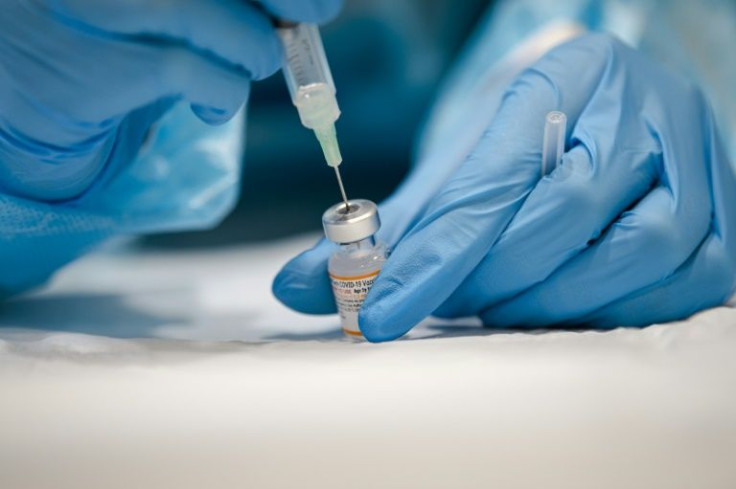WHO Suggests A Smaller Dose Of COVID Vaccine For Young Children

The World Health Organization (WHO) is recommending that children younger than 12 receive a smaller dose of a COVID-19 vaccine than those used for everyone else.
On Friday, the head of WHO's advisory group on immunization briefed reporters on the agency's recommendations on vaccinations for children. Alejandro Cravioto, chairman of the Strategic Advisory Group of Experts (SAGE), explained that WHO advises that children aged 5 to 11 be given a dose of 10 micrograms over the usual 30 micrograms offered to those aged 12 or older.
"This age group (5-11) is in the lowest priority use group for vaccination except for children who have comorbidities," Cravioto said at a briefing.
Children in this age group are the youngest eligible to receive any of the approved COVID-19 vaccines. For its part, WHO has been cautious in its approach to issuing recommendations on how to approach vaccinations for children. Compared to national governments that have fully embraced vaccinations for children as they became available, WHO has been measured in its statements.
Last November, WHO issued an interim statement that elaborated on its stance as it related to vaccines for young children. In it, they did not fully dispute the choices by countries like the United States to begin inoculating those 12 and younger, but they raised concerns about whether this should be a priority. To make this point, they cited evidence from studies that showed children were at a lower risk of suffering severe infections than adults. It also highlighted the need to understand the nature of the side effects of the vaccines in younger people.
"There is now overwhelming evidence that immunization of all adults with COVID-19 vaccines provides important health returns on investment," read the statement.
"Although benefit-risk assessments clearly underpin the benefit of vaccinating all age groups, including children and adolescents, the direct health benefit of vaccinating children and adolescents is lower compared with vaccinating older adults due to the lower incidence of severe COVID-19 and deaths in younger persons," it continued.
Despite this, the arrival of the Omicron variant appears to have altered WHO’s position. In the same announcement where WHO suggested the use of smaller doses, it also announced its approval of the vaccines for those in the 5 to 11 age group, three months after they were approved in the United States.
The agency also recommended booster doses be prioritized for frontline health care workers, older adults and those in other high-risk groups four to six months after their initial doses. This was significant given the past and recent criticisms by WHO’s Director General Tedros Adhanom Ghebreyesus of booster drives over what he says is their contribution to vaccine shortages in lower-income countries.






